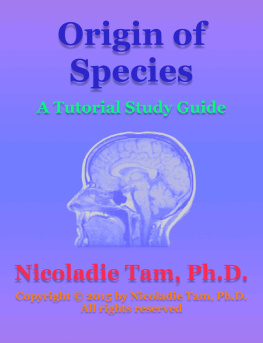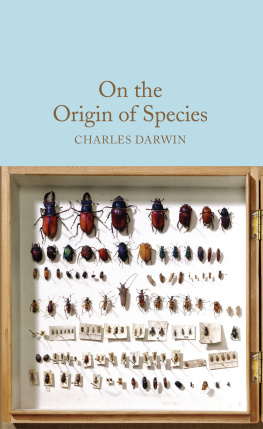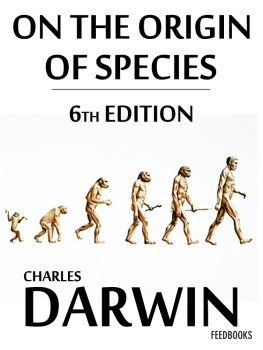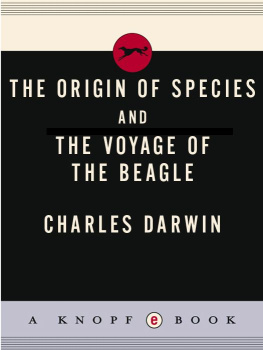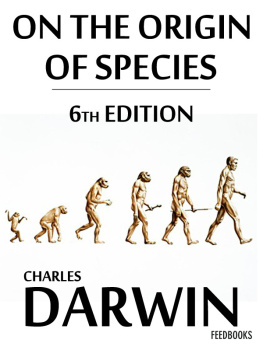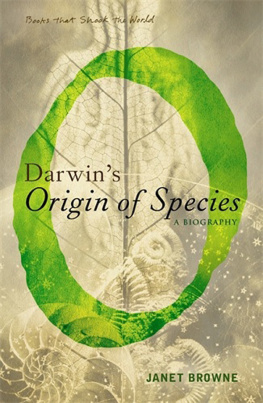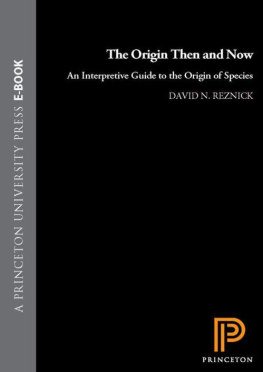Revisiting the Origin of Species
Contemporary interest in Darwin rises from a general ideal of what Darwins books ought to contain: a theory of transformation of species by natural selection. However, a reader opening Darwins masterpiece, On the Origin of Species, today may be struck by the fact that this selectionist view does not deliver the key to many aspects of the book. Without contesting the importance of natural selection to Darwinism, much less supposing that a fully-formed Darwinism stepped out of Darwins head in 1859, this innovative volume aims to return to the text of the Origin itself.
Revisiting the Origin of Species focuses on Darwin as theorising on the origin of variations; showing that Darwin himself was never a pan-selectionist (in contrast to some of his followers) but was concerned with other means of modification (which makes him an evolutionary pluralist). Furthermore, in contrast to common textbook presentations of Darwinism, Hoquet stresses the fact that On the Origin of Species can lend itself to several contradictory interpretations. Thus, this volume identifies where rival interpretations have taken root; to unearth the ambiguities readers of Darwin have latched onto as they have produced a myriad of Darwinian legacies, each more or less faithful enough to the originators thought.
Emphasising the historical features, complexities and intricacies of Darwins argument, Revisiting the Origin of Species can be used by any lay readers opening Darwins On the Origin of Species. This volume will also appeal to students and researchers interested in areas such as Evolution, Natural Selection, Scientific Translations and Origins of Life.
Thierry Hoquet is Professor of Philosophy of Science in the Department of Philosophy at Paris Nanterre University, France.
History and Philosophy of Biology
Series Editor: Rasmus Grnfeldt Winther
This series explores significant developments in the life sciences from historical and philosophical perspectives. Historical episodes include Aristotelian biology, Greek and Islamic biology and medicine, Renaissance biology, natural history, Darwinian evolution, Nineteenth-century physiology and cell theory, Twentieth-century genetics, ecology, and systematics, and the biological theories and practices of non-Western perspectives. Philosophical topics include individuality, reductionism and holism, fitness, levels of selection, mechanism and teleology, and the nature-nurture debates, as well as explanation, confirmation, inference, experiment, scientific practice, and models and theories vis--vis the biological sciences.
Authors are also invited to inquire into the and of this series. How has, does, and will the history of biology impact philosophical understandings of life? How can philosophy help us analyze the historical contingency of, and structural constraints on, scientific knowledge about biological processes and systems? In probing the interweaving of history and philosophy of biology, scholarly investigation could usefully turn to values, power, and potential future uses and abuses of biological knowledge.
The scientific scope of the series includes evolutionary theory, environmental sciences, genomics, molecular biology, systems biology, biotechnology, biomedicine, race and ethnicity, and sex and gender. These areas of the biological sciences are not silos, and tracking their impact on other sciences such as psychology, economics, and sociology, and the behavioral and human sciences more generally, is also within the purview of this series.
Rasmus Grnfeldt Winther is Associate Professor of Philosophy at the University of California, Santa Cruz (UCSC), and Visiting Scholar of Philosophy at Stanford University (20152016). He works in the philosophy of science and philosophy of biology and has strong interests in metaphysics, epistemology, and political philosophy, in addition to cartography and GIS, cosmology and particle physics, psychological and cognitive science, and science in general. Recent publications include The Structure of Scientific Theories, The Stanford Encyclopaedia of Philosophy and Race and Biology, The Routledge Companion to the Philosophy of Race. His book with University of Chicago Press, When Maps Become the World, is forthcoming.
Modelling Evolution
A New Dynamic Account
Eugene Earnshaw
Revisiting the Origin of Species
The Other Darwins
Thierry Hoquet
Revisiting the Origin of Species
Contemporary interest in Darwin rises from a general ideal of what Darwins books ought to contain: a theory of transformation of species by natural selection. However, a reader opening Darwins masterpiece, On the Origin of Species, today may be struck by the fact that this selectionist view does not deliver the key to many aspects of the book. Without contesting the importance of natural selection to Darwinism, much less supposing that a fully-formed Darwinism stepped out of Darwins head in 1859, this innovative volume aims to return to the text of the Origin itself.
Revisiting the Origin of Species focuses on Darwin as theorising on the origin of variations; showing that Darwin himself was never a pan-selectionist (in contrast to some of his followers) but was concerned with other means of modification (which makes him an evolutionary pluralist). Furthermore, in contrast to common textbook presentations of Darwinism, Hoquet stresses the fact that On the Origin of Species can lend itself to several contradictory interpretations. Thus, this volume identifies where rival interpretations have taken root; to unearth the ambiguities readers of Darwin have latched onto as they have produced a myriad of Darwinian legacies, each more or less faithful enough to the originators thought.
Emphasising the historical features, complexities and intricacies of Darwins argument, Revisiting the Origin of Species can be used by any lay readers opening Darwins On the Origin of Species. This volume will also appeal to students and researchers interested in areas such as Evolution, Natural Selection, Scientific Translations and Origins of Life.
Thierry Hoquet is Professor of Philosophy of Science in the Department of Philosophy at Paris Nanterre University, France.
First published 2018
by Routledge
2 Park Square, Milton Park, Abingdon, Oxon OX14 4RN
and by Routledge
711 Third Avenue, New York, NY 10017
Routledge is an imprint of the Taylor and Francis Group, an informa business
2018 Thierry Hoquet
The right of Thierry Hoquet to be identified as author of this work has been asserted by him in accordance with sections 77 and 78 of the Copyright, Designs and Patents Act 1988.
All rights reserved. No part of this book may be reprinted or reproduced or utilised in any form or by any electronic, mechanical, or other means, now known or hereafter invented, including photocopying and recording, or in any information storage or retrieval system, without permission in writing from the publishers.
Trademark notice: Product or corporate names may be trademarks or registered trademarks, and are used only for identification and explanation without intent to infringe.
British Library Cataloguing-in-Publication Data
A catalogue record for this book is available from the British Library
Library of Congress Cataloging-in-Publication Data
A catalog record has been requested for this book



